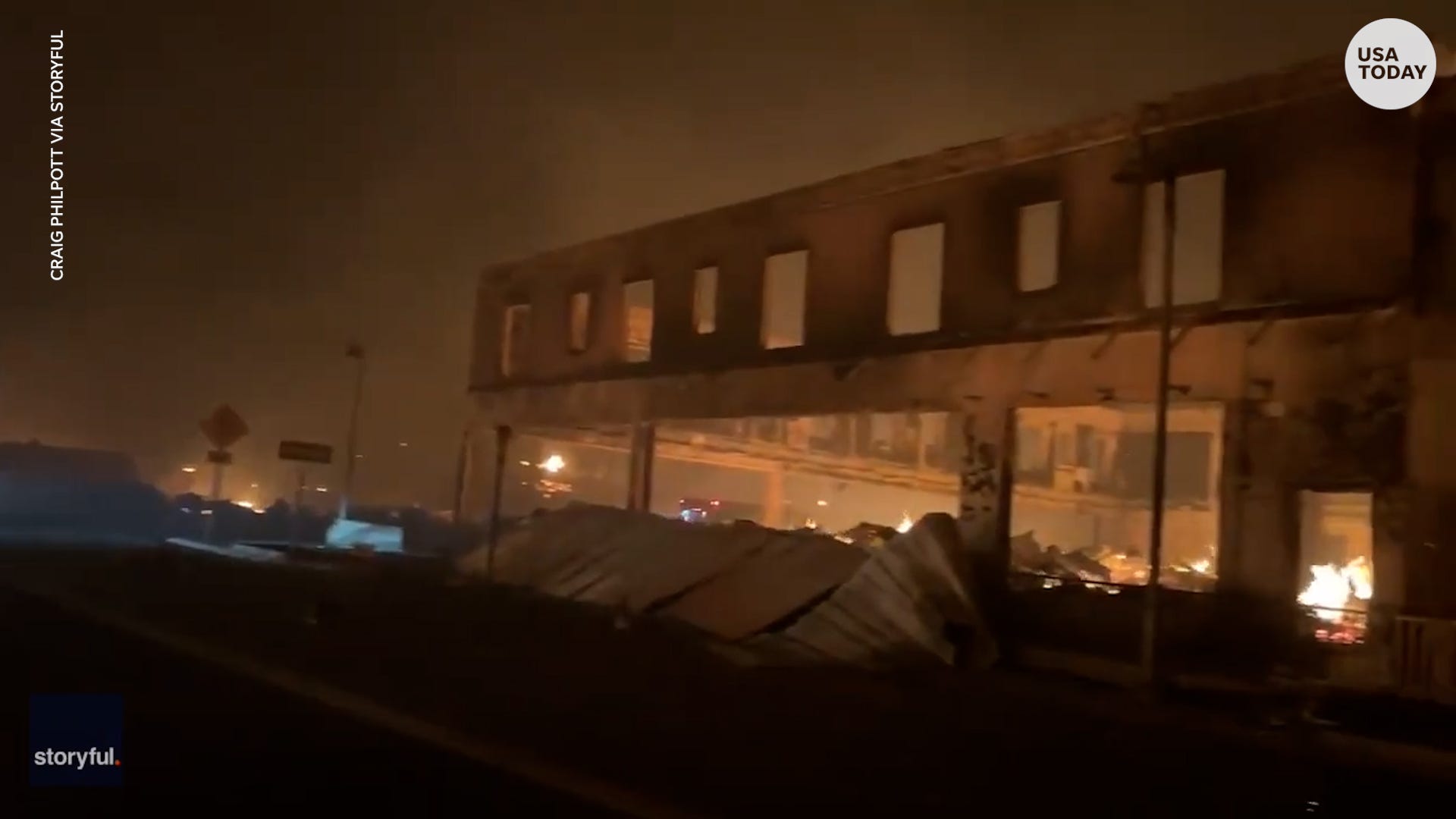'We didn't expect a monster like this': Dixie Fire, largest single blaze in California history, threatens thousands of homes
John Bacon | USA TODAY

- The fire has destroyed at least 400 homes and structures.
- An estimated 14,000 buildings are threatened.
- The fire was only 21% contained.
Thousands of homes were threatened Sunday as the largest single wildfire in California history raced through hundreds of square miles of tinder-dry woodland and brush.
The Dixie Fire was less than a quarter contained after burning through more than 700 square miles in Northern California's Butte, Plumas, Tehama and Lassen counties. At least 400 homes and other structures have been destroyed , Cal Fire said in an update early Sunday.
The fire was the largest among more than major 100 wildfires in 15 states. Those fires have burned more than 3,500 square miles, according to the National Interagency Fire Center.
"The fire outlook continues to reflect warmer and drier conditions leading to the high potential for severe wildfire activity throughout the (West) through the rest of summer and into the fall," the fire center warned Sunday. "Widespread high temperatures ... with periods of lightning activity continue to exacerbate the wildfire situation."
The Dixie Fire, named after the road where the blaze ignited, was being fueled by bone-dry vegetation and fanned by strong winds. Just about the entire Plumas County town of Greenville, population about 1,000, has been destroyed after 370 homes and structures burned late last week.
“We knew we didn’t get enough rainfall and fires could happen, but we didn’t expect a monster like this,” said Kesia Studebaker, who lives and works in the town.
A red sky and a road on fire: How this man 'barely survived' the Dixie Fire
Four firefighters were taken to the hospital Friday after being struck by a fallen tree branch. More than 20 people were reported missing in the blaze, but by Saturday afternoon authorities had contacted all but four of them.
"Our hearts ache for this town," Gov. Gavin Newsom said as he walked through the charred rubble Saturday. "Though this moment may seem insurmountable, we’ll be there to help you rebuild."
The fire also claimed a historic fire lookout in Lassen Volcanic National Park. The Mount Harkness Lookout is the park's first loss from the blaze when it burned into the Juniper Lake area.
"I'm here to announce tonight — confirm — that the historic Harkness fire lookout did burn down," park Superintendent Jim Richardson said Saturday night. "There are other resources at risk, particularly facilities, many of them are historic, so we will report that out to the public as soon as we can confirm any losses."
Lassen Volcanic National Park has been closed to visitors since Thursday. Richardson said the fire "ran nearly the length of the entire park ... a little over 8,000 acres in the national park." He said he expects the blaze to continue to slowly spread to the west, burning additional park acres.
The August Complex Fire a year ago burned through more land than the Dixie has razed thus far, but that fire was a compilation of more than 30 fires ignited by lightning strikes. The utility Pacific Gas & Electric has said the Dixie Fire may have ignited when a tree fell on one of its power lines.
A federal judge last week ordered PG&E to provide details by Aug. 16 on the equipment and vegetation where the fire started.
California's Dixie Fire has burned 700 square miles , larger than New York City
The fire is threatening 14,000 buildings in the northern Sierra Nevada. Crews constructed a 465-mile perimeter around the massive blaze, but officials are only confident that about 20% of that was secure, said Deputy Incident Commander Chris Waters.
“Every bit of that line needs to be constructed, staffed, mopped up and actually put to bed before we can call this fire fully contained,” Waters said warned.
Newsom thanked the 8,500 firefighter personnel "for your heroic and extraordinary work." He said the state will do more to manage its forests and to pre-position firefighting equipment to save lives and communities.
"A the end of the day we have to acknowledge this – the dries are getting a lot drier, the heat and hot weather are a lot hotter than they have ever been," Newsom said. "We need to acknowledge straight up that these are climate-induced wildfires."
Contributing: Mike Chapman, Redding Record Searchlight; The Associated Press
Via PakapNews